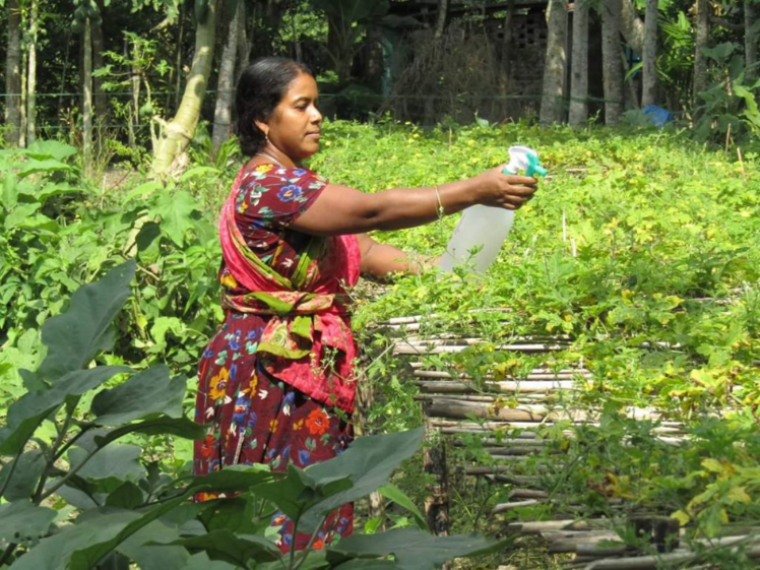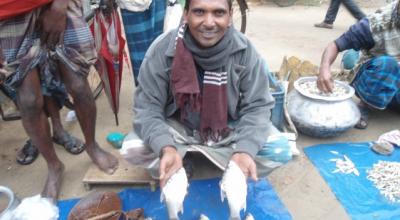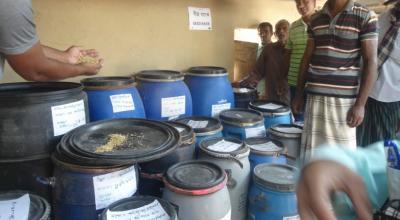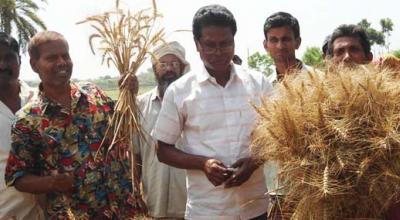Organic pesticides
Tuesday 12 October 2021
Champa and her husband have been farming for a long time, but they were also heavily in debt. They regularly encountered challenges such as natural disasters, pests and diseases affecting their crops, which made it more and more difficult to feed the low-income family and to provide nutritious food regularly for their three children.
"I’m now committed to producing safe food for myself and my family. We will produce healthy crops and feed ourselves and share regularly with our neighbours. I encourage all my neighbours to produce safe food”.
As part of the project, they participated in various training programmes on the Integrated Farming System, which helped Champa conduct adaptive research on her farm, such as training on recycling, reusing products and upcycling. Now, she uses cow dung and urine, as well as kitchen waste to produce organic pesticides and organic fertiliser. She has set up a modern compost pit in her garden to make organic fertiliser at home. Cow urine is now preserved and used as an organic pesticide on the farm, especially for the vegetables. Her husband now takes the vegetables to the neighbouring market twice per week to sell the surplus produce. Last year, the family produced about 1,440kg of vegetables on their farm. That was about one and a half times as much as before they joined the project. In addition, Champa and her family earn money by selling the surplus.
Linked news
Donate
Your donation is essential to ensure the continuity of Caritas Luxembourg's actions in the service of the poor.
Other donation methods



